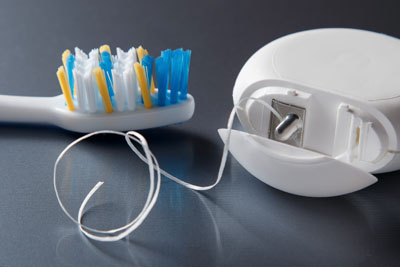 Taking care of the teeth and gums is essential to overall health. However, dental treatment is not exactly cheap. If you are like most people, you are looking for ways to lower your dental costs while maintaining a healthy mouth. Scott Dexter, DDS in El Dorado Hills goes over helpful tips.
Taking care of the teeth and gums is essential to overall health. However, dental treatment is not exactly cheap. If you are like most people, you are looking for ways to lower your dental costs while maintaining a healthy mouth. Scott Dexter, DDS in El Dorado Hills goes over helpful tips.
Below, we take a look at some oral health care tips that will keep your dental costs in check.
Fluoride is Essential for Oral Health Care
Brush with a toothpaste that contains fluoride. Try to brush within an hour or two after eating a meal. Fluoride is also in tap water, fluoride treatment trays available at the dentist’s office and fluoride pills. Fluoride is necessary to keep the teeth strong and prevent expensive oral health procedures.
Maintain an Oral Health Regimen
Get into the habit of brushing at least two times per day and flossing a minimum of once each day. This is the bare minimum of oral health care necessary to maintain healthy teeth and gums. Such good oral hygiene will prevent the vast majority of dental diseases.
Do not Skip Visits to Scott Dexter, DDS.
If the patient does not feel any sort of pain or is not unhappy with the look of his or her smile, it is awfully tempting to skip a scheduled visit to the dentist’s office. However, failing to have the teeth thoroughly cleaned, examined and treated will inevitably spur the need for dental work. Dental treatments and procedures will only prove that much more expensive if the patient continues to skip those 6-month dental appointments.
Be Proactive to Take Care of Your Teeth
When visiting the dentist, speak up. Patients can find out more information about oral health care and ask about what they can do to improve the form and function of their teeth. Patients need to request advice about oral health care solutions that have the potential to help treat the unique dental challenges. By seeking out such information, patients will have the necessary knowledge to keep their teeth in tip-top shape and avoid costly dental work.
Take Care of Your Teeth by Limiting Snacking
Snacking can sabotage one’s oral health, especially if the individual brushes and/or flosses after meals. Snacking seems innocent yet even those foods that do not taste sweet almost always contain sugar. Regular snacking will expose the teeth to this sugar as well as harmful acid. If an individual must snack, then it is beneficial to choose foods that will not damage the teeth to a considerable extent. Examples of such foods include plain yogurt, fresh vegetables, seeds and nuts. When in doubt, fill up on water rather than munching on foods that have the potential to damage the teeth and spur the need for costly dental treatment.
Rinse With Regularity
Rinsing your mouth with mouthwash will significantly reduce the chances of dental decay. Even rinsing out the mouth with water following a snack or meal will help eliminate those extra bits of food remaining in the mouth. Rinsing following eating will also help maintain a normal pH level. Rinsing stops sugar and starch from attacking the teeth to boot. This reduction in food particles means there are less food for bacteria and subsequently, fewer cavities.
Call us at (916) 233-0910.
Related Posts
Commonly Asked Questions Answered by a Preventive Dentist
A preventive dentist promotes long-term oral wellness by focusing on early detection, regular checkups, and proactive measures to protect teeth and gums from disease. By prioritizing prevention, you can avoid many dental …
Preventive Dentistry: Choosing the Right Toothbrush
Using the right toothbrush is part of preventive dentistry. Your dental health is more secure if you have the right tool for cleaning your teeth and gums. An effective toothbrush can help …
Why Preventative Dental Care Is Important
Preventative dental care is similar to every other type of preventative care, which is taking the necessary precautions to prevent dental issues like gum disease. These simple steps can help prevent serious problems in the …
Why Preventative Dental Care Is So Important
Regular preventative dental care is important. It can help you get an early diagnosis of potential cavities, so you can focus on giving those areas more attention. Regular dental cleanings can help remove plaque so …

